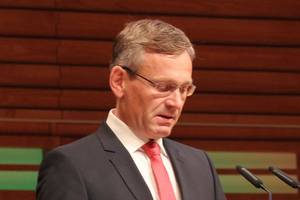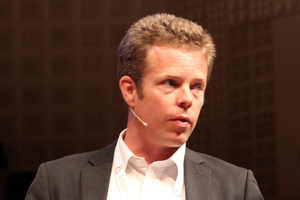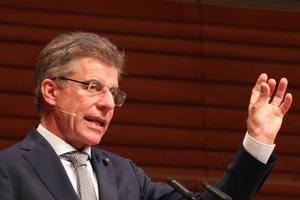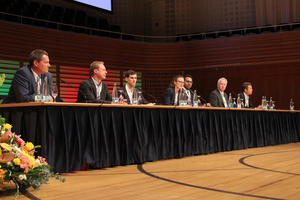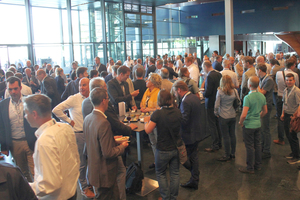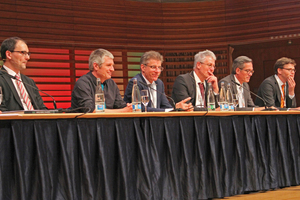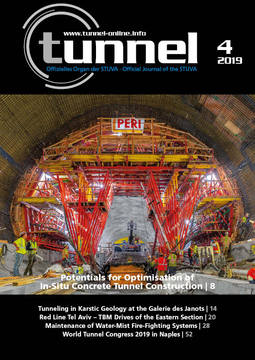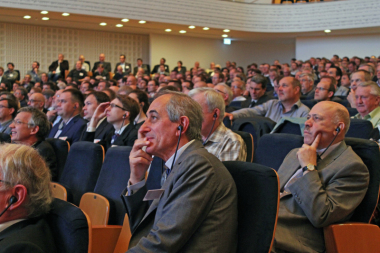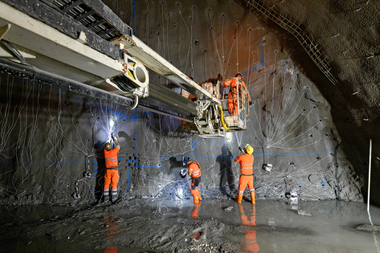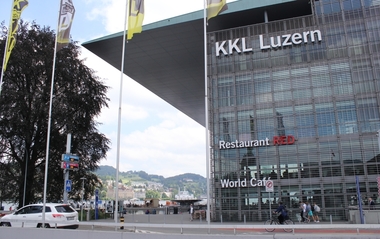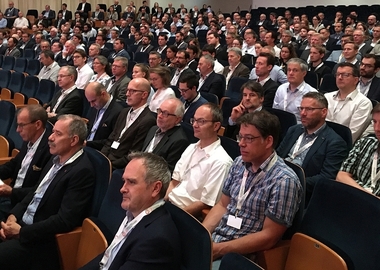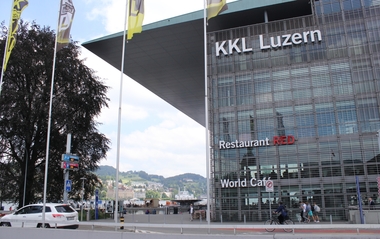Swiss Tunnel Congress 2019 in Lucerne
From June 4 to 6, 2019, the Swiss Tunnelling Society (STS) staged the 18th Swiss Tunnel Congress in the concert hall at the Lucerne Culture and Congress Centre. Around 700 visitors took part in the lecture programme of the STC. The Swiss Tunnel Colloquium for students, young engineers and technicians on the first congress day once again was a success with 380 participants.
This year’s Swiss Tunnel Colloquium was titled „Material Technology Innovations in Tunnel Construction“, with reports about university research in the fields of construction materials and digital fabrication. Moreover, the participants gained detailed insight into the state of technology regarding Ultra-High Performance Concrete (UHPC), Self Compacting Concrete (SCC), injection technology and fibre-reinforced concrete for underground construction.
Tunnelling in Switzerland and International Project Reports
Numerous complex and demanding projects were discussed in the 13 presentations of the STC. For example the upgrade of the world’s largest particle accelerator of the European Organization for Nuclear Research CERN in Geneva, the Large Hadron Collider – the High Luminosity LHC project. Pieter Mattelaer, Project Manager Civil Engineering, outlined the scope of the works at two nearly identical sites in Switzerland and France, each including a shaft, a cavern, new underground galleries and surface buildings. Construction started in April 2018 and is scheduled to be finished in 2022.
Urs Müller (IM Maggia Engineering AG) presented the modernisation of the Swiss Ritom power plant with partial integration of the Stalvedro power plant. Started in 2018 and scheduled to be completed by 2023, construction work includes a new power plant facility with new pressure shaft, new powerhouse and downstream re-regulating reservoir.
Thomas Jesel (Amberg Engineering) talked about the Swedish high-capacity road expansion project Förbifart Stockholm, with 18 of the total 21 km being constructed underground. He focused on the experiences gained from the design and execution of the Lövstavägen underpass – two ramp tunnels crossing under a four-lane road with very little coverage. The complex challenge of hard bedrock tunnelling in combination with water-bearing soft ground necessitated extensive auxiliary measures by means of jet grouting from the surface and a pipe roof umbrella.
Prof. Konrad Bergmeister gave a report on the geotechnical challenges in connection with mechanised excavation of the 15-km exploration tunnel at the Brenner Base Tunnel’s construction lot Tulfes–Pfons. Several fault zones and ten large overbreaks were encountered in the first 13 km. The cavities were bridged with purpose-built heavy steel segments, injected infill concrete and a cement/water suspension for binding the collapsed rock.
The conference had many more interesting topics for the professional audience – amongst other things tunnelling in unconsolidated ground in an urban environment at the example of the Swiss railway tunnel de Pinchat, construction in anhydrite within the framework of the Stuttgart 21 project, data analysis to help guiding a TBM excavating the Metro Line B in a densely built-up area in Rennes and the new General Contractor Plus contract model of the SBB Infrastructure that was awarded for the New Bözberg Tunnel, encompassing all services from the planning of the work to the handover of the “turnkey” tunnel to the SBB.
All presentations of the Swiss Tunnel Congress 2019 are available as full articles in the digital proceedings on the STS website //www.swisstunnel.ch" target="_blank" >www.swisstunnel.ch:www.swisstunnel.ch.
The next Swiss Tunnel Congress will be held at the KKL in Lucerne, June 2–4, 2020.

